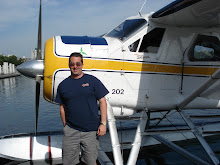
Roy Chadwick C.B.E. (1893-1947) Considered by many to be Britain's greatest aircraft designer, he designed many of his aircraft in premises in what is now the offices of British Aerospace on Greengate in Chadderton, Oldham, including the Avro Lancaster.
Roy Chadwick was born on 30th April 1893 at Marsh Hall Farm, Farnworth, when man’s desire to fly was still a dream. By the time of the Wright Brothers’ epic flight in 1903, Roy was already building and flying models of his own design and it was a dream come true when he joined A.V. Roe & Company in 1911. Alliott Verdon Roe himself interviewed the youngster, and was so impressed that he employed him immediately at a salary of One Pound per week. Roy quickly became Personal Assistant to ‘A.V.’ before eventually being made Chief Designer in 1919 at the age of 26. He was considered by many to be one of the world’s great aircraft designers with a stable of aircraft types to his name: Avro 504, Baby. Avian, Tutor, Anson, Lancaster, Lincoln, Tudor, York, Shackleton and even the original design for the Avro 698 which became the Vulcan.
Roy Chadwick was always one step ahead with his thinking and planning of new designs, and early in the development of the jet engine he spoke of a turbo-prop version, then still a long way off. Chadwick’s early sketches of a delta wing design are now well known, and formed the basis of a shape which eventually became the Avro Vulcan.
Sadly, Roy Chadwick died on Saturday 23rd August 1947 in the Avro Tudor 2 in what should have been a normal flight over the Lake District. The aileron controls had been assembled incorrectly, causing the aircraft to bank sharply right. The aviation world had lost a wealth of irreplaceable experience with this crash, and Chadwick’s death at the age of 54 cut short a career, which could have produced even greater designs. He had been awarded the CBE in 1943 for his special modification to the Lancaster design for the famous Dams Raid, and many feel that had he lived, he would have been knighted
